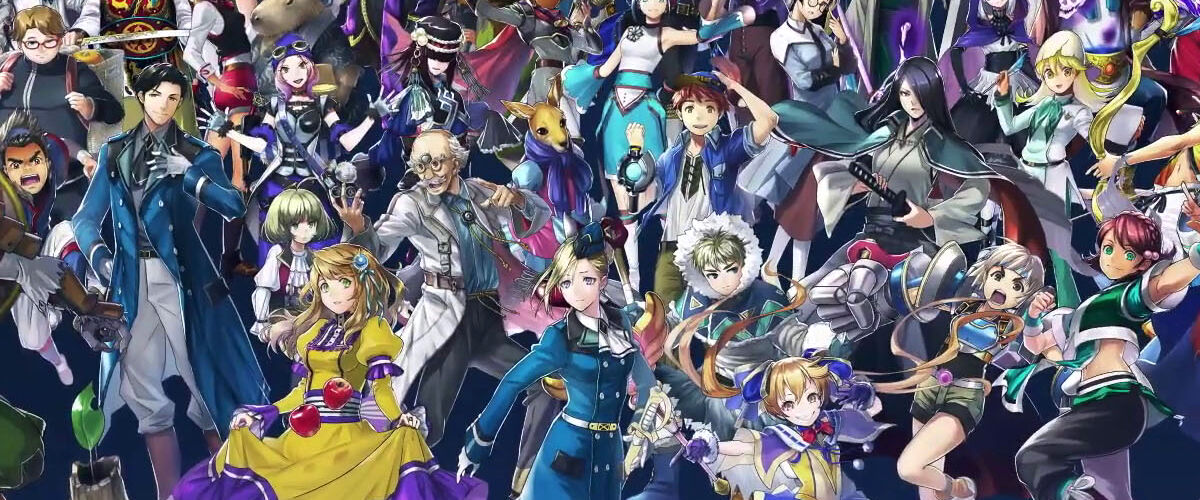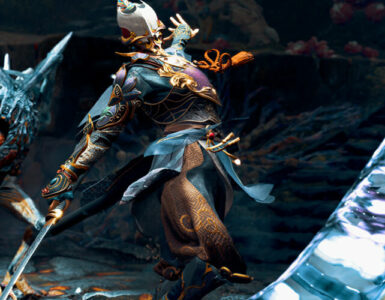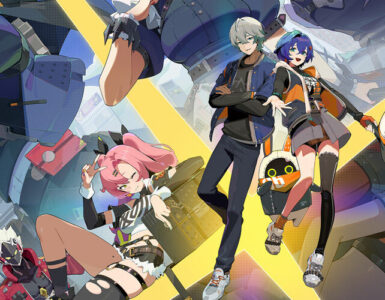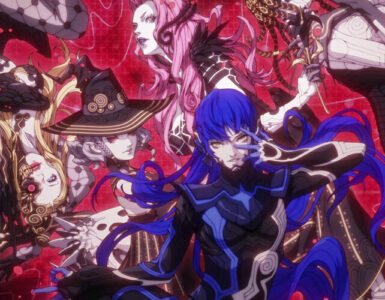Following in the footsteps of pastiche games like Mighty No. 9, Keiji Inafune’s spiritual successor to Mega Man, and Koji Igarashi’s Castlevania revival, Bloodstained: Ritual of the Night, Eiyuden Chronicle: Hundred Heroes is a valiant attempt to recapture the magic of classic games from a bygone era — in this case, Konami’s role-playing game (RPG) series, Suikoden.
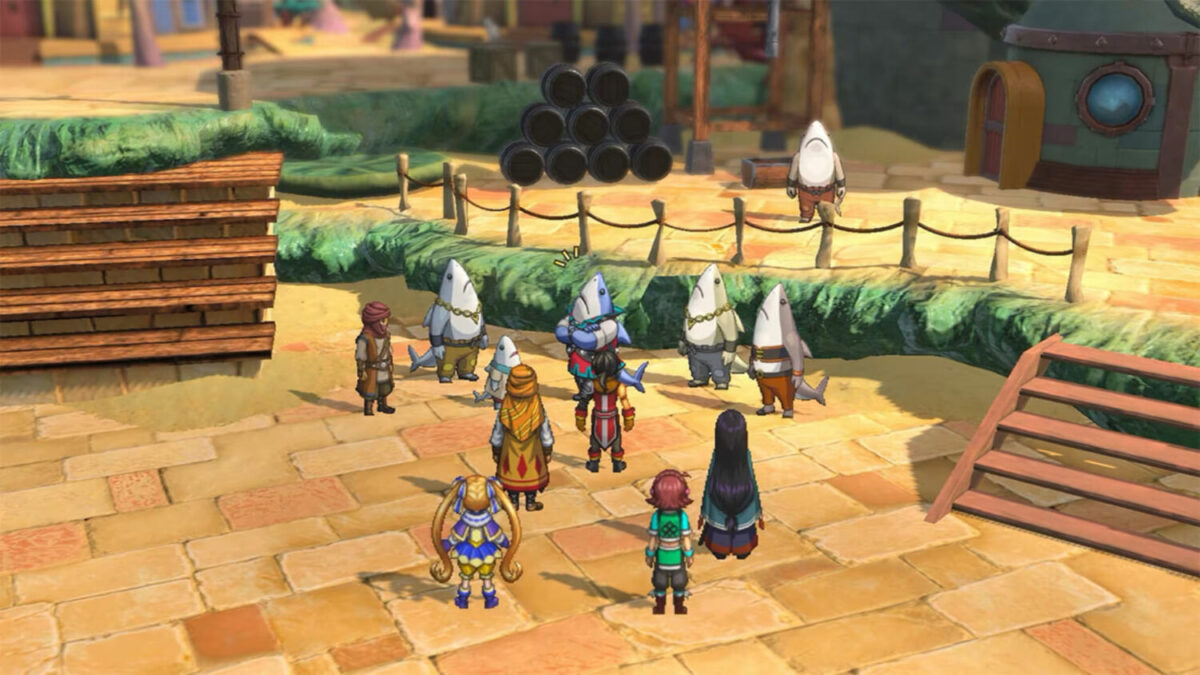
What sets this game apart from games that pay homage to the original is that it’s designed by the late Yoshitaka Murayama, the creator of Suikoden himself, and supported by the team of industry veterans (with credits spanning games such as Time Hollow, Arca Last, and Castlevania: Aria of Sorrow) that make up Rabbit & Bear Studios, so it’s no surprise that this crowdfunded success understands the genre’s intricacies. A bite-sized prequel to Hundred Heroes, Eiyuden Chronicle: Rising, was released in 2022 to set the stage for this new franchise. For the uninitiated, Hundred Heroes boasts a massive world, an expansive narrative, and over 100 recruitable characters, which makes the game’s scope is undeniably impressive, capturing the essence of Suikoden while adding its own unique twists and turns.
One of Hundred Heroes‘s standout features is its vast roster of characters, each with distinct personalities and abilities. The thrill of recruiting new party members recalls the joys of a Pokémon-esque “Gotta catch ’em all!” collectathon, as players scour the world for unique characters to join their cause. However, the recruitment process often devolves into mundane activities, such as tedious fetch quests and repetitive tasks, detracting from the sense of excitement and discovery.
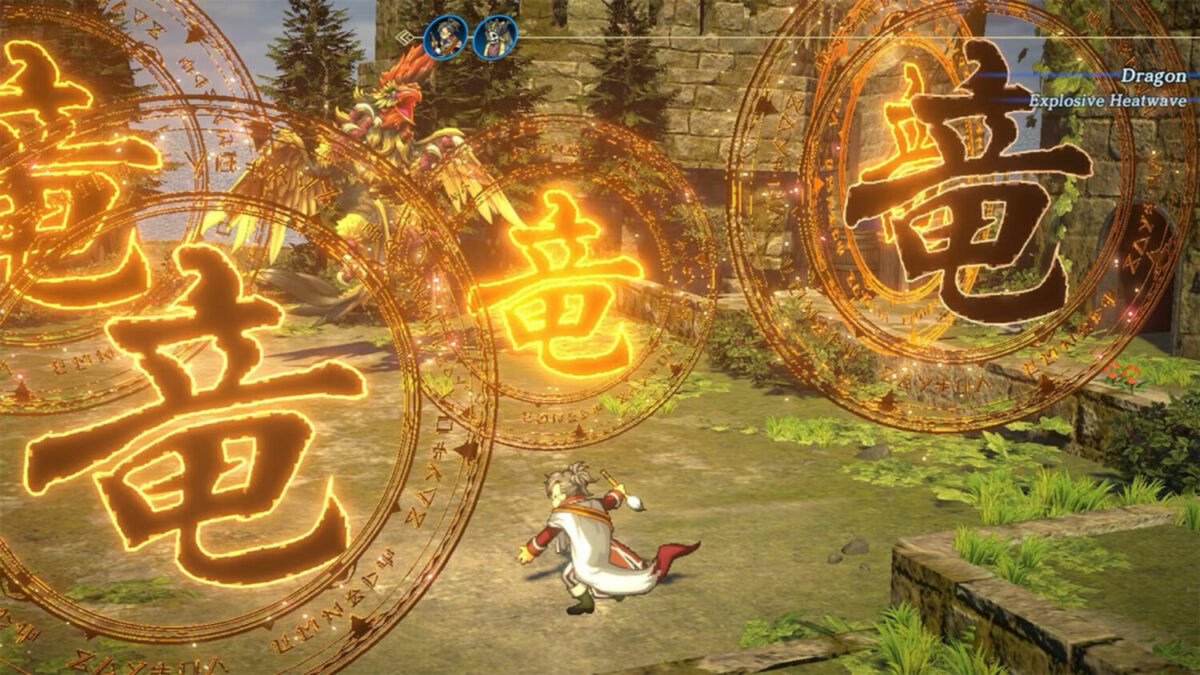
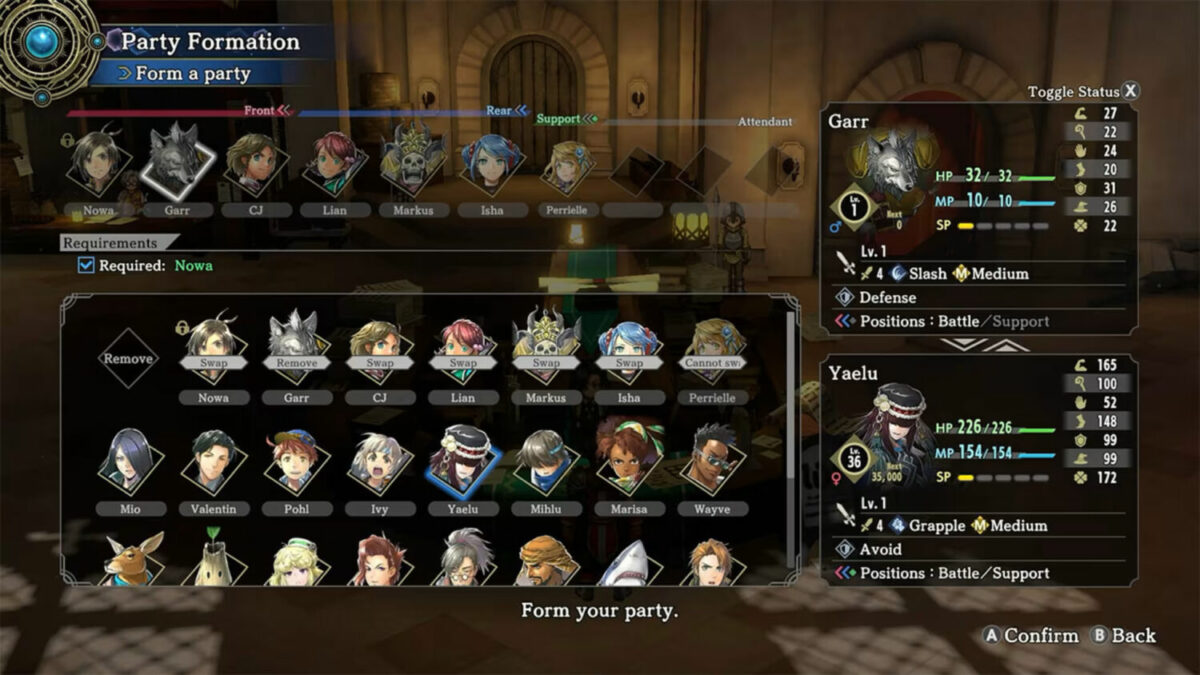
Battles in Hundred Heroes adhere to a pretty conventional JRPG format, tasking players with commanding a team of up to six characters in turn-based skirmishes. The combat initially feels straightforward and uninspired, lacking the strategic depth and challenge expected from a game of its calibre. The early hours of the game can be powered through with basic attacks, leaving much to be desired in terms of complexity.
That said, the combat becomes more engaging as players unlock new abilities and expand their party, paving the way for customisation and experimentation. Coupled with equippable magical items and team-up attacks between characters that share an affinity, there are numerous ways to build a team. However, with most regular enemy encounters remaining a dull grind rather than appealing challenges, there may not be much reason to fiddle with team composition. In contrast, boss battles offer unique obstacles and gimmicks, adding depth to the combat experience.
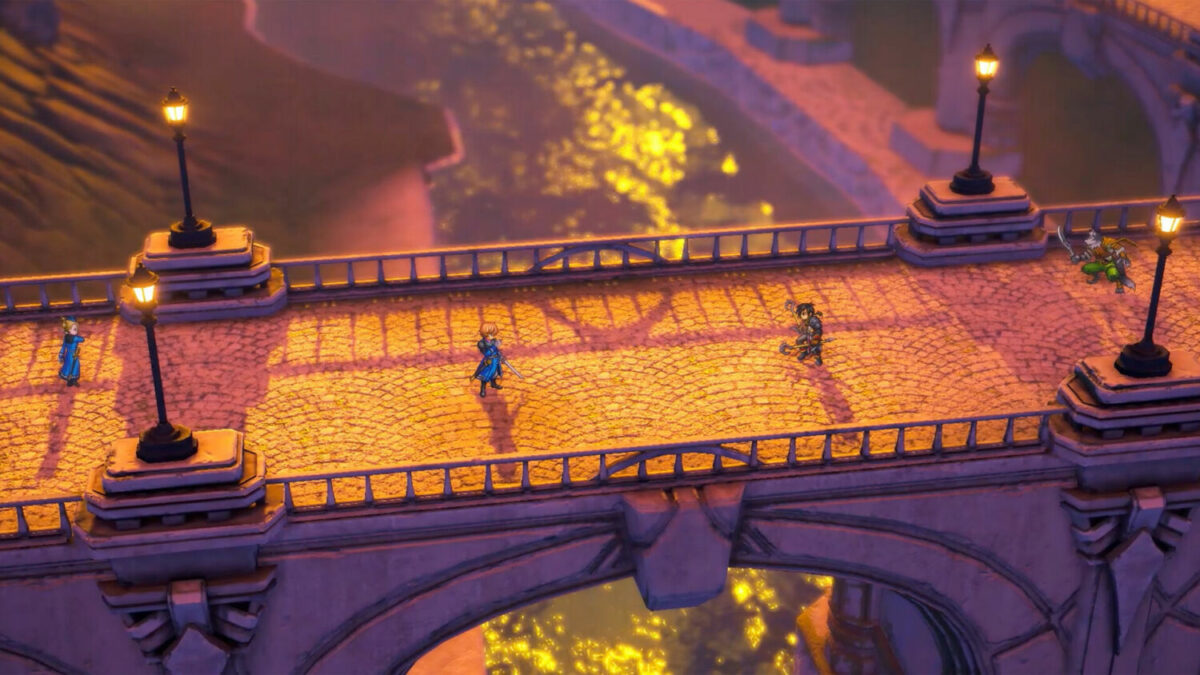
Even with a plot rife with clichés, Hundred Heroes offers moments of gripping storytelling and political intrigue. Yet, the narrative occasionally stumbles due to its trio of main protagonists and extensive supporting cast, resulting in a lack of balance between the overarching political drama and individual character development.
While not all of the titular hundred heroes can be brought into battle, they add a ton of personality and variety to the adventure. For example, certain recruited characters may pipe up during cutscenes with unique voice lines, adding dimension and character to the scene. In addition to the game’s diverse cast of characters and narrative twists, secret bosses and a range of mini-games spanning Beyblade-style duels to base-building challenges do a commendable job of keeping players engaged.
It’s also worth acknowledging the stellar soundtrack, helmed by acclaimed composers Michiko Naruke, famous for her work on the Wild Arms series, and Motoi Sakuraba, known for his contributions to games like Star Ocean, Golden Sun, and Dark Souls. The music in Hundred Heroes is not only pleasing but effectively captures the spirit of the adventure, offering a wide range of tunes that complement the game’s various moods and moments. From epic orchestrations to subtle melodies, the soundtrack adds an extra layer of immersion to the overall experience.
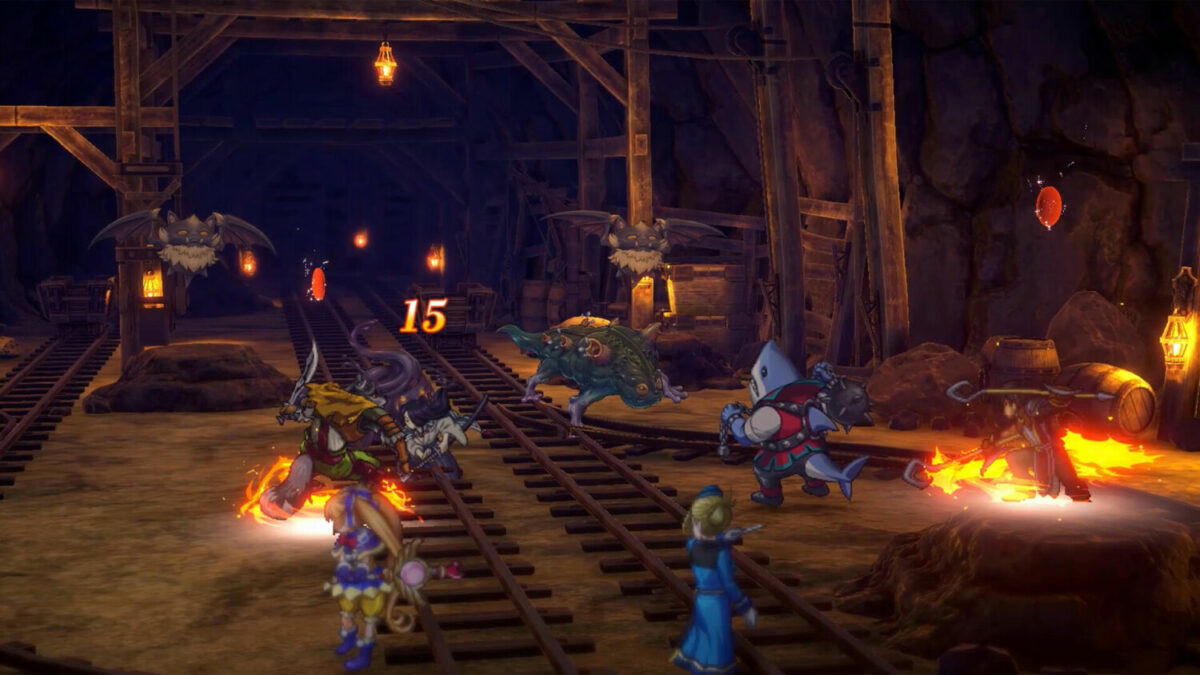
In terms of visuals, Hundred Heroes adopts the 2.5D (or ‘HD-2D’) style popularised by Octopath Traveler, blending pixelated characters and monsters against three-dimensional backgrounds, evoking a diorama-like quality enhanced by the strategic use of shallow depth-of-field. However, a strange design choice has some monsters appear more detailed than the main characters, almost as if they were pulled from a different game entirely, creating a visual discrepancy that feels jarring. Moreover, the overworld suffers from lacklustre textures, diminishing its visual impact.
Performance-wise, the frame rate frequently drops into choppy territory, especially in dungeons and the overworld. What’s more, lengthy load times plague the game, cropping up during random encounters and menu navigation. Loading screens sometimes last between four to nine seconds just to get in or out of random battle sequences. Meanwhile, each instance of opening the main menu triggers a noticeable load time for every tab, needlessly extending playtime. These technical issues suggest a distinct lack of optimisation for the Nintendo Switch or point towards the 7-year-old hardware’s struggle to keep up with games.
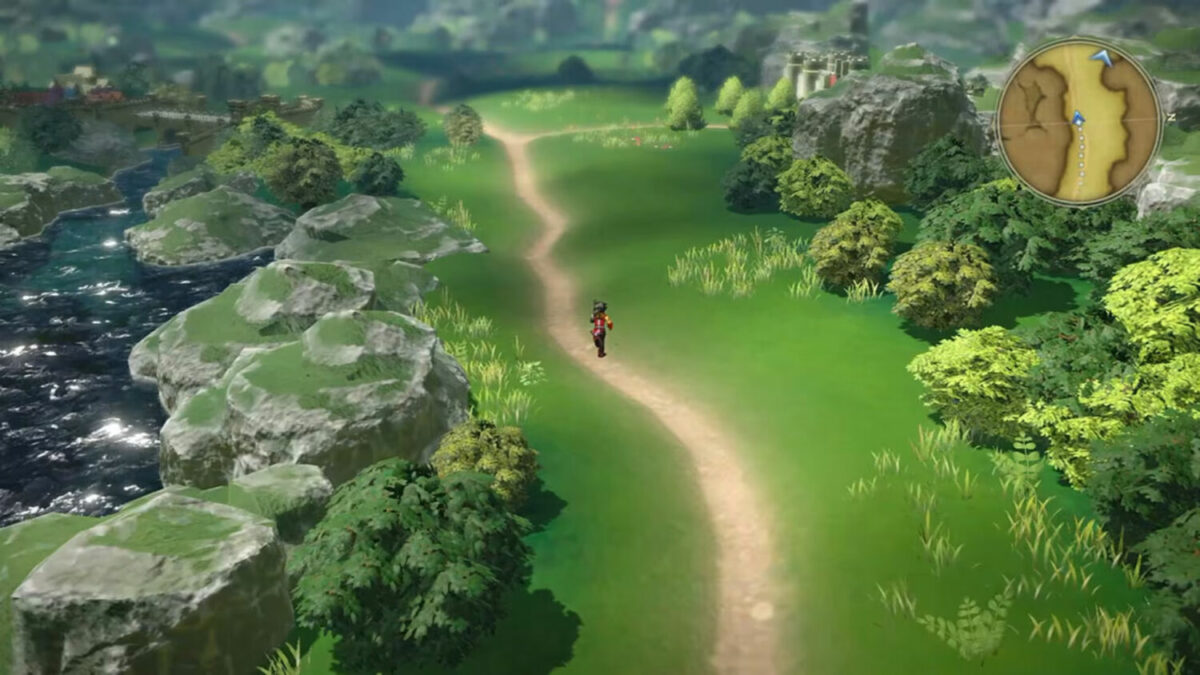
Ultimately, Eiyuden Chronicle: Hundred Heroes falls short of delivering a truly memorable experience. Despite its sprawling world and vast cast of characters, the game’s tedious activities, disjointed narrative, and technical shortcomings detract from its overall appeal. While it may scratch a particular nostalgic itch for some players, others may find themselves longing for the emotional depth and polish of its spiritual predecessors.
GEEK REVIEW SCORE
Summary
Despite its grand scope and nostalgic charm, Eiyuden Chronicle: Hundred Heroes is not without its flaws. Tedious activities, a disjointed story, and technical issues hinder the overall experience.
Overall
5/10-
Gameplay - 6/10
6/10
-
Story - 6/10
6/10
-
Presentation - 4/10
4/10
-
Value - 4/10
4/10

